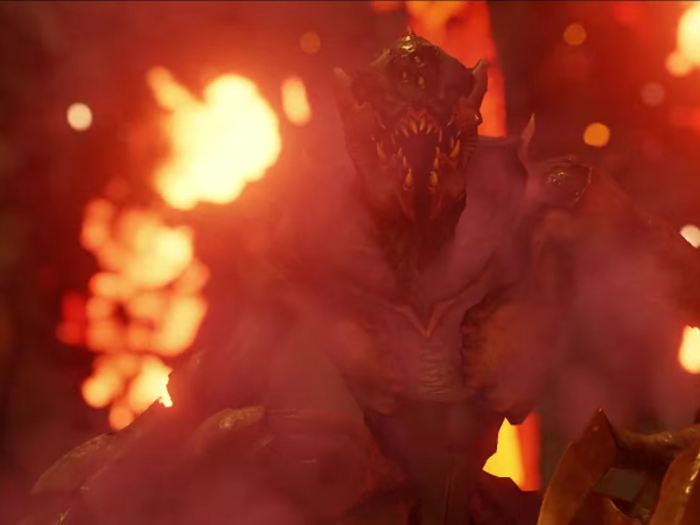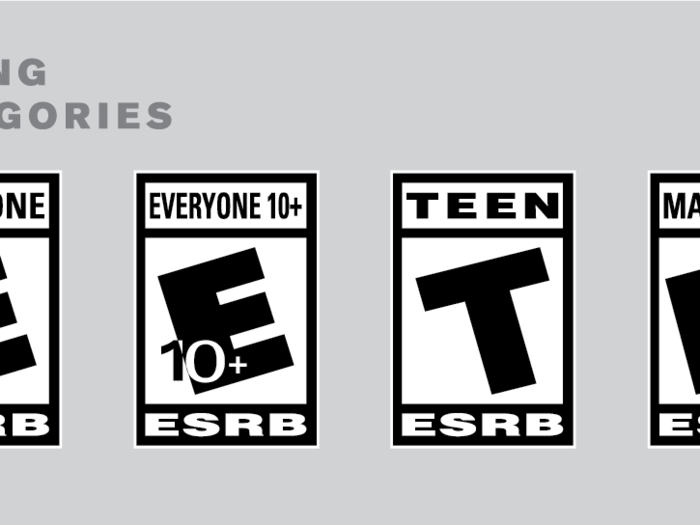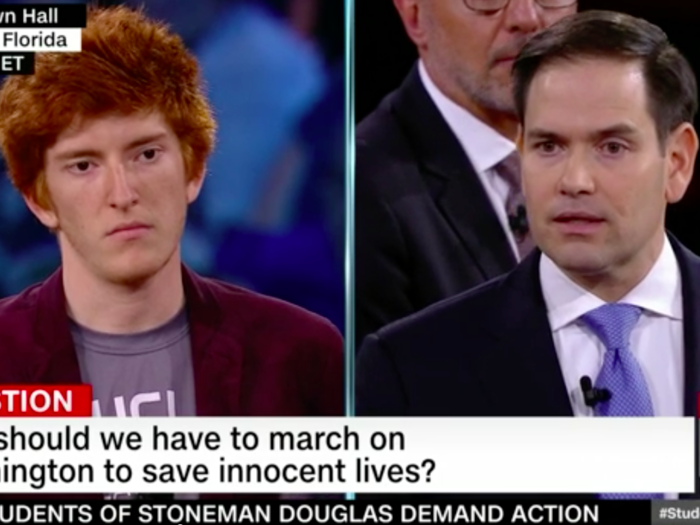- Home
- slideshows
- miscellaneous
- In the wake of Parkland, President Trump is meeting with leaders from the video game industry to discuss gun violence - but don't expect anything to come of it
In the wake of Parkland, President Trump is meeting with leaders from the video game industry to discuss gun violence - but don't expect anything to come of it
Discussing violent video games is a distraction from the real issue: Gun violence.

Violent video games don't lead to real life violence.

The suggestion that violent video games and films are at least partly responsible for the rise and persistence of gun violence in the US dates back to the early '90s. But the Columbine High School shooting in 1999 brought it into the national conversation once again.
The two Columbine High School gunmen were active "Doom" players. Since the game primarily focuses on shooting a gun — at demons, in outer space — commentators suggested that the gunmen had trained for the real-life shooting by playing "Doom." The game featured a gun as the main point of interaction and perspective — the "first-person shooter" was a relatively new concept in video games back in 1999 — and thus arose suspicion.
If these teenage gunmen were playing this game, and capable of committing such a horrific act, what did that mean for all the other kids playing these games?
There's a simple answer to that, of course: The same video games are sold all over the world, yet gun violence is far more prevalent in the United States than the vast majority of countries where games are sold. In other words, video games are not the determining factor.
Video games have ratings already.

If you've ever purchased a video game, you've probably run into a video game rating. The Entertainment Software Ratings Board (ESRB) is responsible for giving out video game ratings in North America. If the game contains enough graphic violence, and enough sexually suggestive themes, it's likely to be rated for play by teens and/or adults.
Games are rated for various groups based on a variety of factors, from violence to depictions of sex (and many other things). If you're publishing a game in North America, and intending to sell it in a retail store, you're required to have an ESRB rating.
And if you're buying a game in a retail store that's rated "M for mature," you're almost certain to be carded — independent reports put retail compliance with video game ratings at north of 90%.
Simply put: It's very difficult to buy a violent video game in a store as a minor.
The ESRB was actually created in response to previous calls from government officials to regulate video game ratings in the early '90s. Moreover, it was created by the video game industry lobby group that's scheduled to meet with President Trump and other lawmakers on Thursday.
If the call from Trump is to "put a rating system for that," there's an easy answer: One already exists.
Where the video game industry could find a sticking point is in the push toward digital game sales. Without parents monitoring, it's entirely possible to buy any game you want through digital storefronts — all you need is a credit card or a prepaid card (which can be purchased by anyone online or at retail). Will that come up in this meeting? We'll find out soon.
The White House meeting is stacked with conservative group representatives and Republican members of Congress.

The list of attendees for the White House meeting on Thursday is far from a bi-partisan council.
The members of Congress attending are all Republicans:
-Senator Marco Rubio (R-FL)
-Representative Vicky Hartzler (R-MO)
-Representative Martha Roby (R-AL)
Outside of representatives from the video game industry, every expert opinion at this meeting is a conservative voice. They are:
-Mr. Brent Bozell, Media Research Center
-Lt. Col. Dave Grossman (Ret.), "On Killing: The Psychological Cost of Learning to Kill in War and Society” and "Assassination Generation: Video Games, Aggression, and the Psychology of Killing"
-Melissa Henson, Mother from Parents Television Council
The conservative groups will argue that violent games are being advertised to children, and the game industry representatives will argue that the game ratings system exists to keep parents informed. All of which is to say one thing: The meeting will probably not accomplish anything aside from placating conservative groups and distracting the media.
(And here I am, writing about this instead of, say, the lack of movement from lawmakers on gun control. It's already working!)
Popular Right Now
Popular Keywords
Advertisement